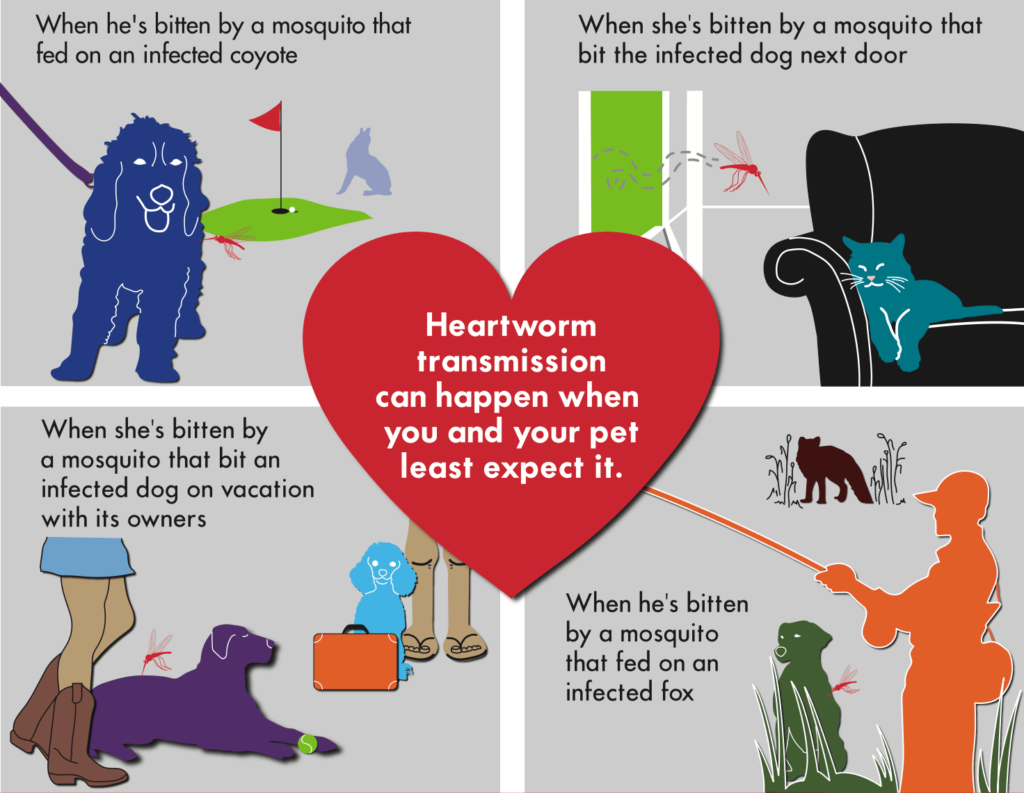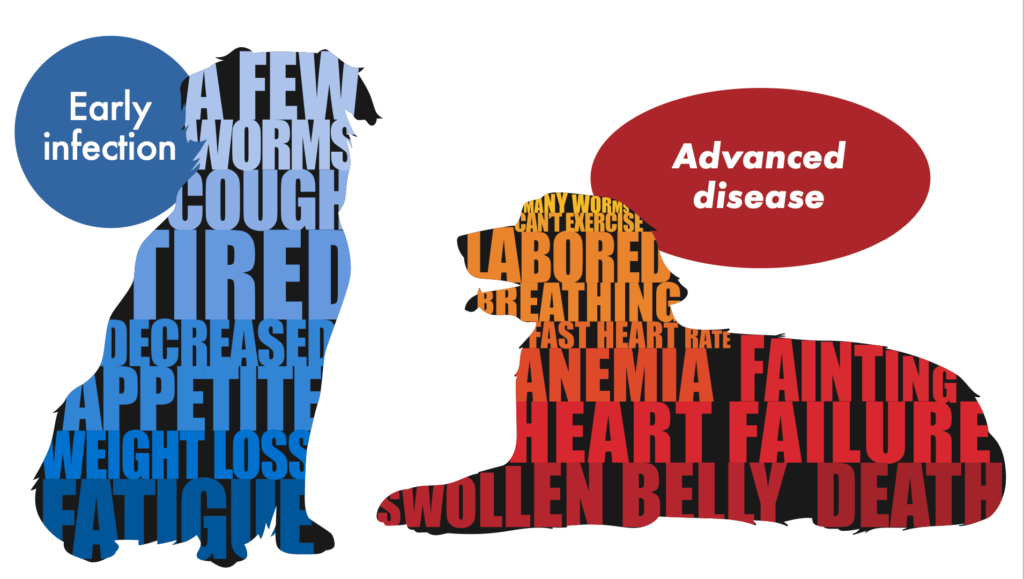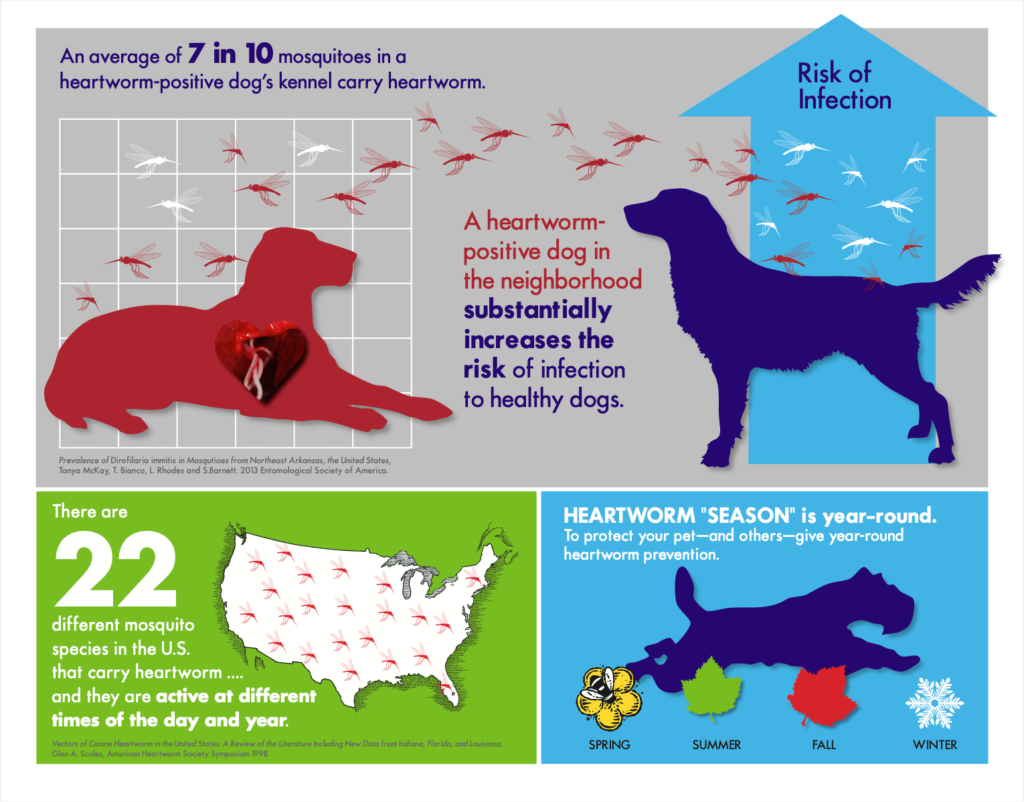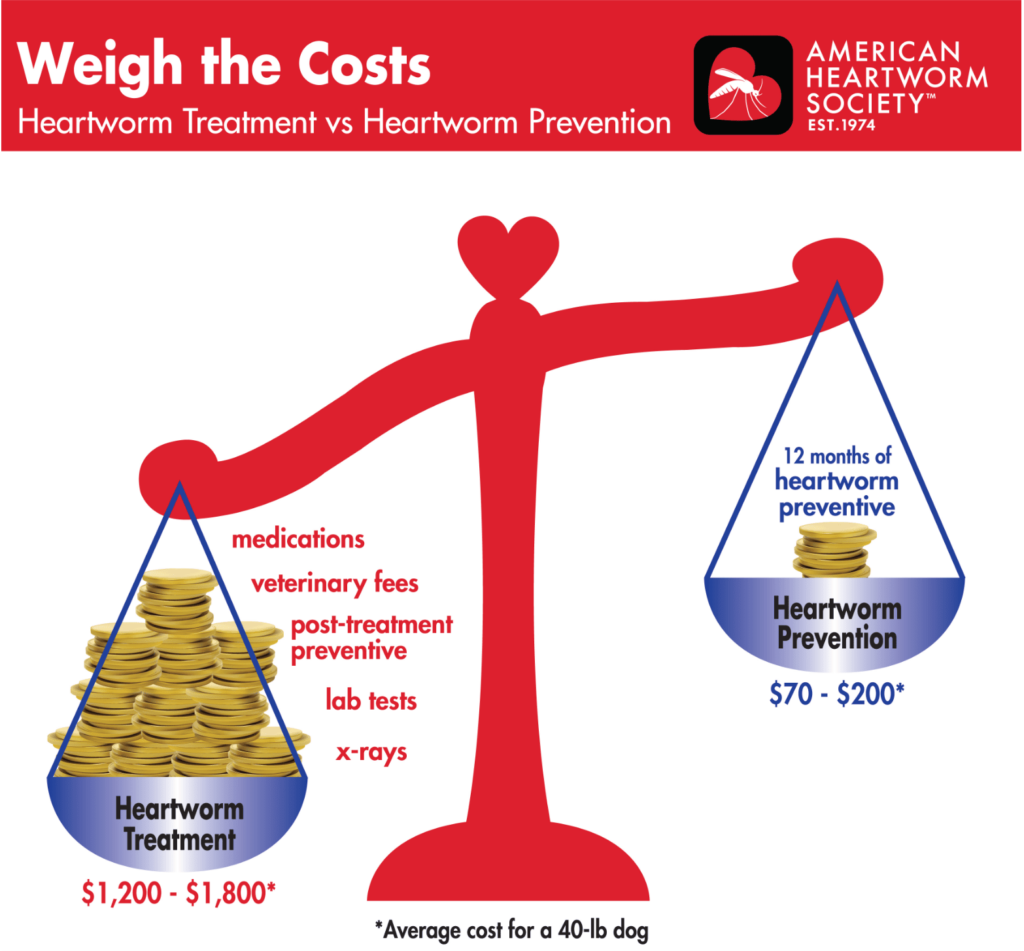At Abbey Animal Hospital, it’s our mission to keep your beloved pets healthy and protected from potentially life-threatening conditions like heartworm disease.
In this blog, we’re going to answer some FAQs around heartworm disease, including how it’s transmitted, its symptoms, and most importantly, how you can prevent it.
Whether you’re a seasoned pet owner or a new fur parent, this information is vital for ensuring the well-being of your furry companions. Let’s dive in and learn more about this preventable yet serious health concern.
1. What is heartworm disease, and how is it transmitted?
Heartworm disease is caused by a parasitic worm called Dirofilaria immitis, which is transmitted through the bite of infected mosquitoes. Once inside the host’s body, the larvae mature into adult worms, which can cause severe damage to the heart, lungs, and blood vessels.

2. How do I know if my pet has heartworms?
Pets infected with heartworms may not show symptoms in the early stages of the disease. However, as the infection progresses, symptoms such as coughing, difficulty breathing, fatigue, and weight loss may occur. Annual heartworm testing is essential to detect the presence of heartworm larvae in your pet’s bloodstream.


3. How can I prevent heartworm disease in my pet?
Preventing heartworm disease involves a multi-step approach, including regular testing and the administration of preventive medication. Annual heartworm testing allows us to detect the presence of heartworm larvae in your pet’s bloodstream, while preventive medications, such as monthly oral or topical treatments, can protect your pet from infection.

4. When should I start my pet on heartworm prevention?
Heartworm prevention should ideally begin as early as possible, starting as young as 8 weeks of age in puppies and kittens. Even if your pet has not been on a preventive regimen in the past, it’s never too late to start. However, it’s essential to have your pet tested for heartworms before starting preventive medication to ensure they are not already infected.
5. Is heartworm prevention necessary year-round?
Yes, at Abbey Animal Hospital we recommend all year round protection against all parasites. Our winters in Baltimore are no longer cold enough to kill off parasites as they once did twenty years ago. It’s essential to remain vigilant and continue administering preventive medication as directed by your veterinarian.


6. Can heartworms be treated if my pet is already infected?
Yes, heartworm disease can be treated if detected early. Treatment typically involves a series of injections to kill the adult worms, followed by a period of rest and monitoring. However, treatment can be costly and may carry risks, so prevention is always preferable.

7. Does my pet need a prescription for heartworm disease preventive medication? If so, why?
Yes. The US Food and Drug Administration (FDA) labeling on heartworm disease preventives states that the medication is to be used by or on the order of a licensed veterinarian. This means heartworm disease preventives must be purchased from your veterinarian or with a prescription through a pet pharmacy.
Prior to prescribing a heartworm disease preventive, your veterinarian will perform a heartworm test to make sure your pet doesn’t already have adult heartworms, as giving preventives can lead to rare but possibly severe reactions that could be harmful or even fatal. If the heartworm testing is negative, heartworm disease preventive medication is prescribed.
Vets do not typically test puppies until 6 months of age or older. Cats are typically not tested, regardless of age, unless they show signs of suspected heartworm disease.
Now that you’ve learned about the risks of heartworm disease and the importance of prevention, take the next step to safeguard your pet’s health. Call us on (410)256-0742 to discuss heartworm testing and prevention options for your pet or click here to request an appointment.
For more information and resources about heartworm you can visit the American Heartworm Society: https://www.heartwormsociety.org/pet-owner-resources.




